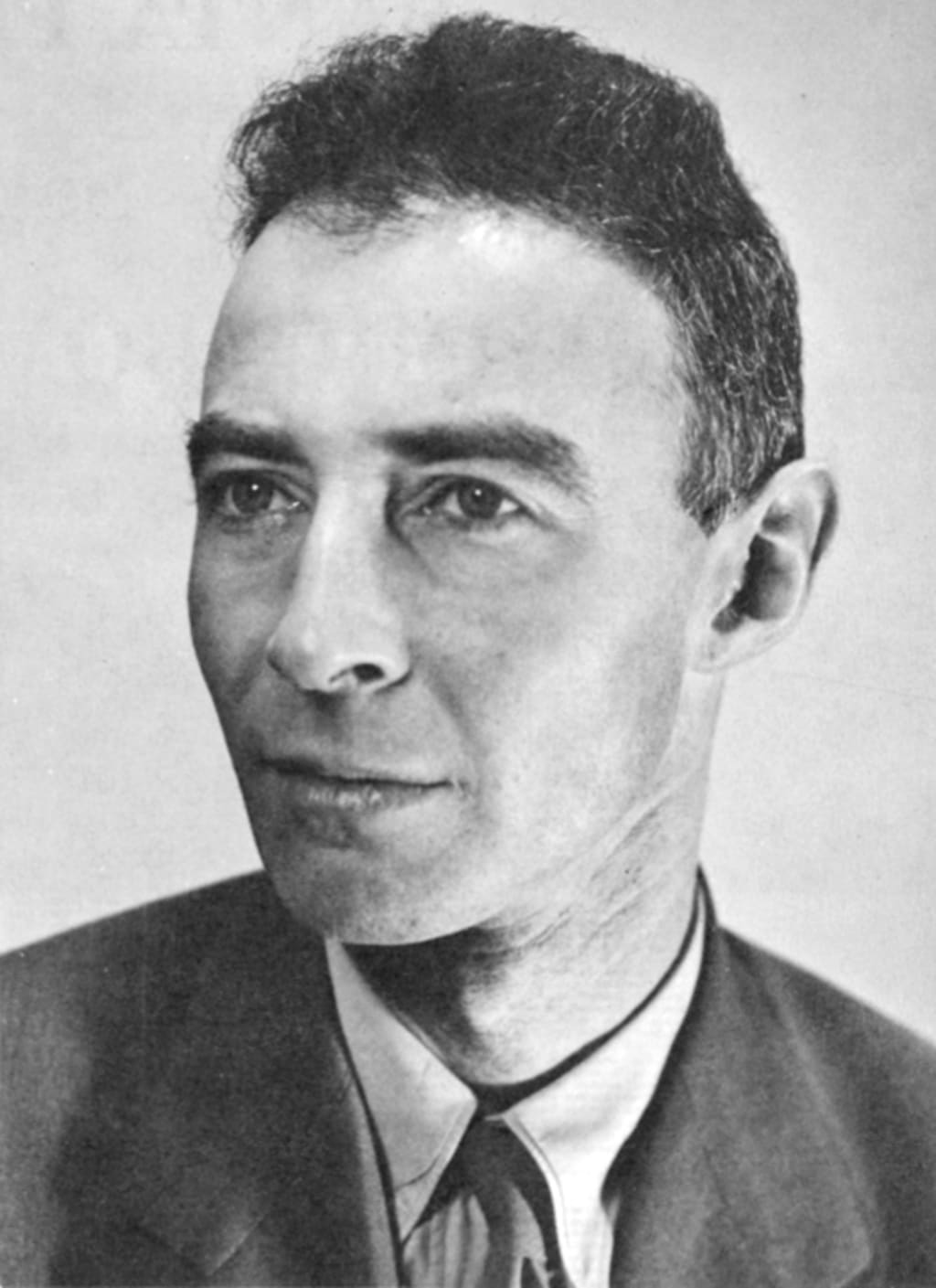Founder of Atomic bombs
Life story of J. Robert Oppenheimer

J. Robert Oppenheimer, born Julius Robert Oppenheimer on April 22, 1904, was an American physicist and scientific director of the Manhattan Project, which developed the atomic bomb during World War II. He is often referred to as the "father of the atomic bomb." Oppenheimer's life story is a fascinating journey marked by significant contributions to science, complex personal experiences, and controversy.
Early Life and Education:
Oppenheimer was born in New York City to a wealthy Jewish family. His father, Julius Oppenheimer, was a successful German immigrant who had made a fortune in the textile business. Oppenheimer grew up in a privileged environment and showed exceptional intellectual abilities from an early age. He attended the Ethical Culture School in New York City and later enrolled at Harvard University in 1922.
At Harvard, Oppenheimer developed a passion for physics and studied under prominent scientists like Percy Bridgman and J.H. Van Vleck. He excelled academically and graduated summa cum laude in 1925. Oppenheimer then pursued his doctoral studies at the University of Göttingen in Germany, where he worked with renowned physicist Max Born and earned his Ph.D. in 1927.
Scientific Career:
After completing his doctorate, Oppenheimer returned to the United States and accepted a position as a faculty member at the University of California, Berkeley. He quickly established himself as a brilliant theoretical physicist, specializing in quantum mechanics and the study of subatomic particles.
Oppenheimer made significant contributions to the field of physics, particularly in the areas of quantum theory and nuclear physics. He made important discoveries related to the behavior of electrons and positrons, developed theories on quantum tunneling, and made fundamental contributions to the understanding of neutron stars.
Manhattan Project and Atomic Bomb:
With the outbreak of World War II, Oppenheimer's expertise in nuclear physics made him a crucial figure in the United States' efforts to develop atomic weapons. In 1942, he was appointed the scientific director of the Manhattan Project, a top-secret research program aimed at building an atomic bomb. Oppenheimer assembled a team of scientists, engineers, and technicians who worked tirelessly to develop the weapon.
Under Oppenheimer's leadership, the Los Alamos Laboratory in New Mexico became the primary site for the development of the atomic bomb. Despite numerous technical and logistical challenges, the project successfully produced the world's first atomic bomb, which was detonated in July 1945 during the Trinity test.
Legacy and Controversy:
The successful creation and use of atomic bombs in the bombings of Hiroshima and Nagasaki in August 1945 had a profound impact on Oppenheimer. Witnessing the immense destructive power of the weapon deeply troubled him, and he became an advocate for international control of nuclear weapons and the peaceful use of atomic energy.
However, Oppenheimer's involvement with the Manhattan Project and his political beliefs came under scrutiny during the post-war era. He faced accusations of communist sympathies and was investigated by the U.S. government during the McCarthy era's anti-communist fervor. In 1954, Oppenheimer's security clearance was revoked after a highly controversial hearing, which damaged his professional reputation and caused significant personal distress.
Later Years and Death:
After the security clearance controversy, Oppenheimer's career took a different path. He shifted his focus to theoretical physics and continued to make significant contributions to the field. He served as the director of the Institute for Advanced Study in Princeton from 1947 to 1966, where he collaborated with other leading scientists.
Oppenheimer's health declined in his later years, and he faced increasing struggles with cancer. He died on February 18, 1967, in Princeton, New Jersey, at the age of





Comments
There are no comments for this story
Be the first to respond and start the conversation.